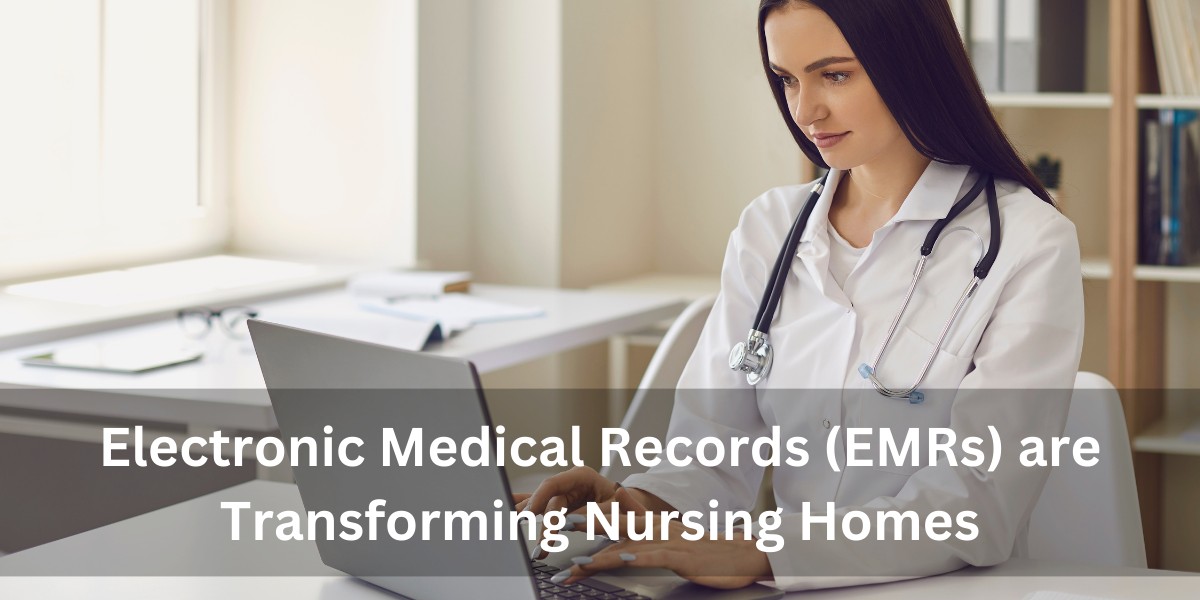It can not be ignored that technology plays an important role in improving patient care and streamlining nursing home operations. One such technological advancement that has impacted nursing homes possibly is the implementation of electronic medical records. Different types of electronic medical records have brought forth a plethora of benefits, ranging from improved coordination to enhanced patient safety. Let’s look into the transformative power of EMRs and explore how they are reshaping the nursing homes.
- Medication management has always been a critical aspect of healthcare, particularly in nursing homes where residents often require multiple medications. Different types of EMR systems have emerged as a game-changer in this domain. With the integration of EMRs, nursing homes have witnessed a remarkable shift from traditional paper-based medication records to streamlined and efficient electronic prescribing systems, ensuring accuracy, safety, and improved patient outcomes. These innovative EMR solutions have brought about a paradigm shift – they have removed the burden of manual medication documentation, reduced the risk of errors, and empowered nursing home staff with comprehensive medication information at their fingertips.
- Another notable advantage of EMRs in nursing homes is the integration of decision support tools. These tools, such as clinical guidelines and reminders, assist healthcare providers in making informed decisions. In nursing homes, where falls and pressure ulcers are significant concerns, types of electronic medical records equipped with fall risk assessment protocols and pressure ulcer prevention guidelines can greatly reduce the occurrence of these adverse events. Also, decision support tools aid in appropriate medication choices, allowing healthcare providers to prescribe medications that are safe and effective for the elderly population.
- Regulatory compliance is an important aspect of healthcare, and EMRs play a vital role in ensuring adherence to regulatory requirements. With EMRs, nursing homes can maintain accurate and complete documentation, a task that was often challenging with paper records. EMRs facilitate the timely submission of reports, reducing the burden on nursing home staff and ensuring compliance with regulatory bodies. Moreover, EMRs uphold privacy and security standards, safeguarding sensitive patient information.
- EMRs can improve teamwork amongst healthcare providers. In the past, they had to gather information from different sources such as paper charts, medical records, and lab results, leading to challenges in providing continuous treatment and potential errors. Now, with EMRs, all essential patient details are stored in one place. This allows different specialists to access the information they need for comprehensive care easily. For instance, when a patient needs to see a doctor, the doctor can quickly review their EMR to find medical history, current medications, and lab results, eliminating the need for repetitive tests or procedures, saving time and resources. Moreover, EMRs enhance communication between healthcare providers. When a patient is discharged from the nursing home, the doctor can share the patient’s EMR with their primary care physician. This enables the primary care physician to promptly access medical history and current medications, simplifying the process of providing further care.
Electronic Medication Administration Record (eMAR) is a crucial part of EMR. It helps healthcare providers to electronically document all aspects of medication administration, including medication details, dosage, time of medication administration, and route of administration. By integrating eMAR with EMR, healthcare professionals gain a comprehensive view of a patient’s medication history. This integration of eMAR and EMR contributes significantly to enhancing patient care and ensuring accurate medication practices in healthcare settings.







